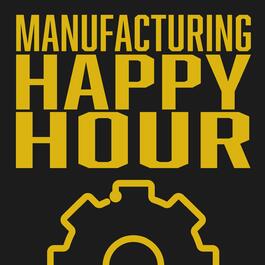
242: Industrial History and the Low-Carbon Economy of the Future with Ted Fertik, VP of Manufacturing & Industrial Policy at BlueGreen Alliance
When we talk about building a more productive and competitive manufacturing industry, talk of AI, automation, and other new tech usually crops up. But let’s not forget the basics – the way we power, staff, and build sustainable practices. That stuff’s also important. We’re in an era of transformation right now, but it’s definitely not the first time the US has gone through this. In fact, we get a little history lesson in this episode from Ted Fertik, VP of Manufacturing & Industrial Policy at BlueGreen Alliance. With a PhD in Economic History, we hear how today's manufacturing challenges mirror our history and what we can learn from it. As we look to the future, Ted talks about today’s greater demands on the electrical grid but also why a low carbon economy and electrification are the future. Ted gives us a breakdown on the work that BlueGreen Alliance is doing to make manufacturing more sustainable and attractive to fresh talent and investors. In this episode, find out:Ted shares his background as a PhD grad in Economic History with a focus on industrySome stories from industrial history that inspired Ted to build a career, including the history of Brazil and the UK’s industriesHow industrial strategy has been successfully rolled out in other countries in the pastWhat the BlueGreen Alliance does to help build a low carbon economy and a stronger industryWhy focusing on investment into transformation benefits everyone, not just the economyThe connection between sustainability and productivity and why they benefit each other and workersWhy manufacturing is such a critical part of a healthy modern economy, especially in the USWhat a low carbon future could look like and why we can’t overlook the effect on the demand for electricityHow manufacturing and industry can attract talent and the role of trade unionsHow to attract investment to a capital-intensive industry and the role of the public sector in making it economically viableWhy we need to make sure that the benefits of careers and investment in manufacturing are widely felt across the population Enjoying the show? Please leave us a review here. Even one sentence helps. It’s feedback from Manufacturing All-Stars like you that keeps us going! Tweetable Quotes:"We need the benefits of the manufacturing economy to be really widely felt. And we need them to be real.”“There's a powerful link between making things with less carbon and the prospect of huge gains in productivity and in material wellbeing for people.”“As we're thinking about building out manufacturing, an affordable, stable, and reliable clean grid is an essential ingredient to a thriving, future-facing manufacturing sector in the US.” Links & mentions:BlueGreen Alliance, an organization that shapes US industrial policy with a focus on good-paying union jobs and environmental progress St. Arnold’s Mussel Bar, serving an extensive variety of mussels, Belgian beers, waffles, and more in a ground-level, brick-lined space near Dupond Circle in Washington, DC Make sure to visit http://manufacturinghappyhour.com for detailed show notes and a full list of resources mentioned in this episode. Stay Innovative, Stay Thirsty.
From "Manufacturing Happy Hour"


Comments
Add comment Feedback